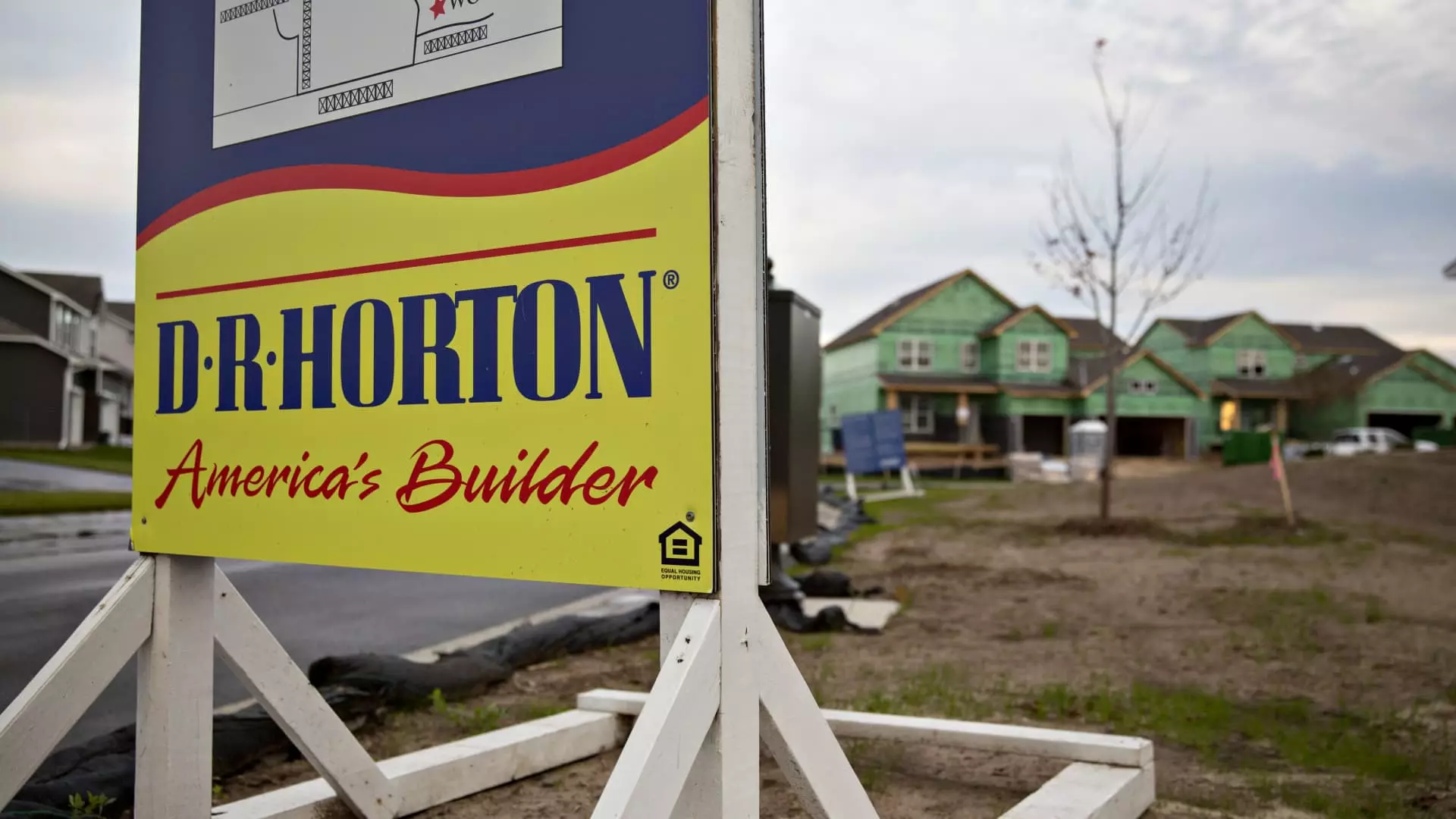D.R. Horton, based in Arlington, Texas, has recently reported quarterly earnings that fell short of Wall Street’s expectations, raising concerns about the wider implications for the housing market and the economy at large. Following the release of its earnings report, which indicated a disappointing forecast, D.R. Horton’s stock plummeted by approximately 11%. This significant drop reflects not only investor sentiment regarding the company’s performance but also deeper fears about the prevailing economic conditions, particularly concerning interest rates.
The company’s CEO, David Auld, highlighted that the persistent volatility surrounding interest rates is sending many potential homebuyers to the sidelines. Although mortgage rates have experienced a decline from their previous highs, a sizable portion of homebuyers is forecasted to hold off on making purchases due to expectations that rates will fall further by 2025. Currently, the rate for a 30-year fixed mortgage hovers around 7%, having dropped from an alarming 8% last October but remaining the highest rate since July.
Mortgage rates, directly influenced by the yield on the 10-year Treasury note, have been fluctuating amidst economic changes, especially with bond yields reflecting an inverse relationship with prices. The recent increases in rates, despite the Federal Reserve’s initial attempts to cut the fed funds rate by half a percentage point in September, indicate a precarious balancing act as strong economic data clash with uncertainty about future rate cuts.
Revenue Projections: Falling Short of Expectations
In its projections for the 2025 fiscal year, D.R. Horton anticipates revenue between $36 billion and $37.5 billion, which is significantly below the consensus estimate of $38.91 billion from analysts. This discrepancy calls into question the company’s growth strategies and how external factors, particularly interest rates, could potentially stifle performance. In contrast, the company reported earnings of $3.92 per share on $10 billion in revenue for the previous quarter, missing analyst expectations of $4.17 per share and $10.22 billion in revenue, thus underlining the challenges it faces.
D.R. Horton’s disappointing results not only impacted its stock but also had a ripple effect across the housing market. Other homebuilders, such as Toll Brothers, Pulte Group, and KB Home, saw their shares drop around 4% in the fallout. This trend reflects how interconnected the housing sector is and how the performance of one significant player can influence others. Moreover, the S&P Homebuilders ETF, which monitors the S&P 500’s homebuilders index, lost 3% in response to these developments, suggesting a broad market concern around the sustainability of growth in the housing sector.
D.R. Horton’s financial results illuminate deeper issues within the economy related to interest rates. As potential buyers remain hesitant amid rate uncertainty, the entire housing market could experience a slowdown that ultimately impacts not just homebuilders, but consumers and the economy as a whole. Stakeholders will need to closely monitor these trends and their implications for future economic growth.

